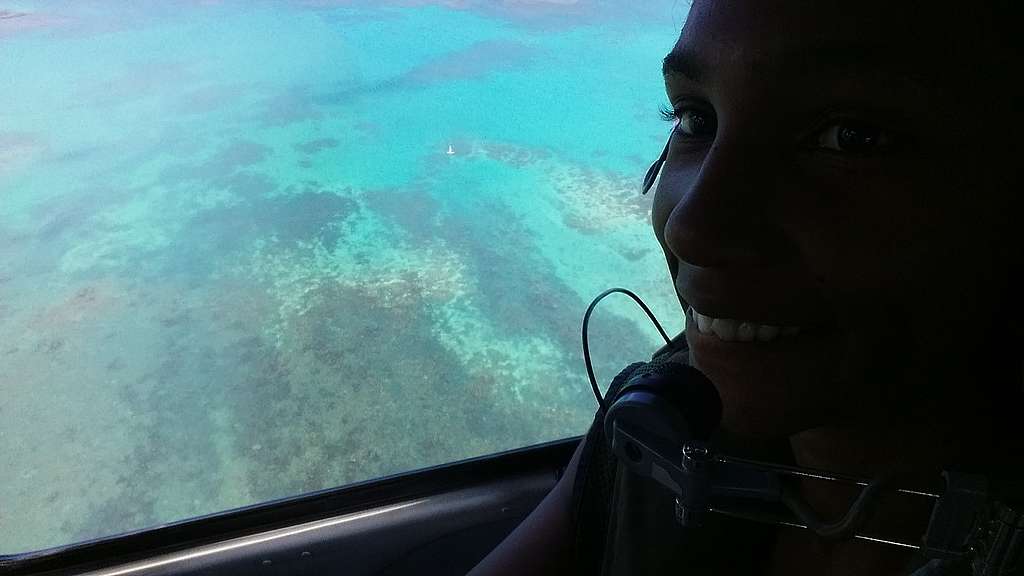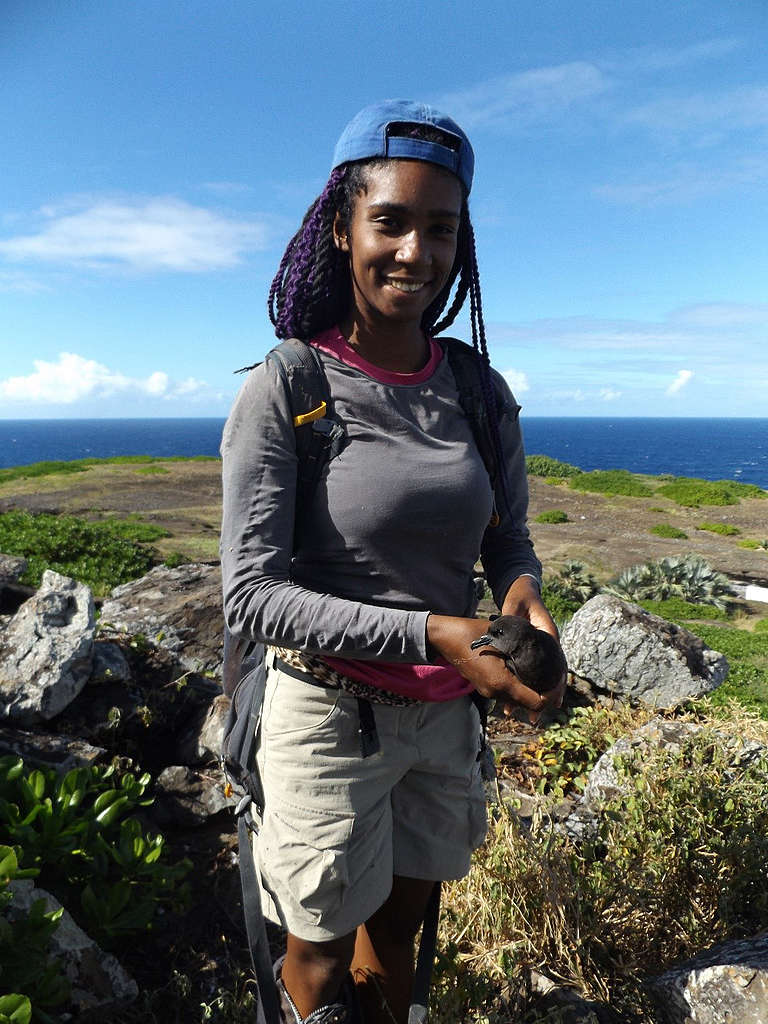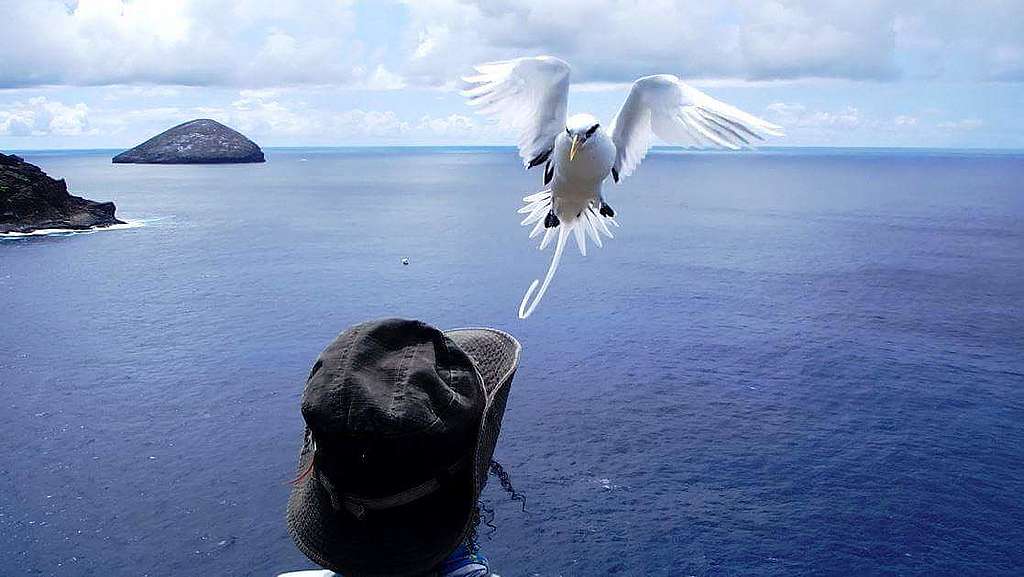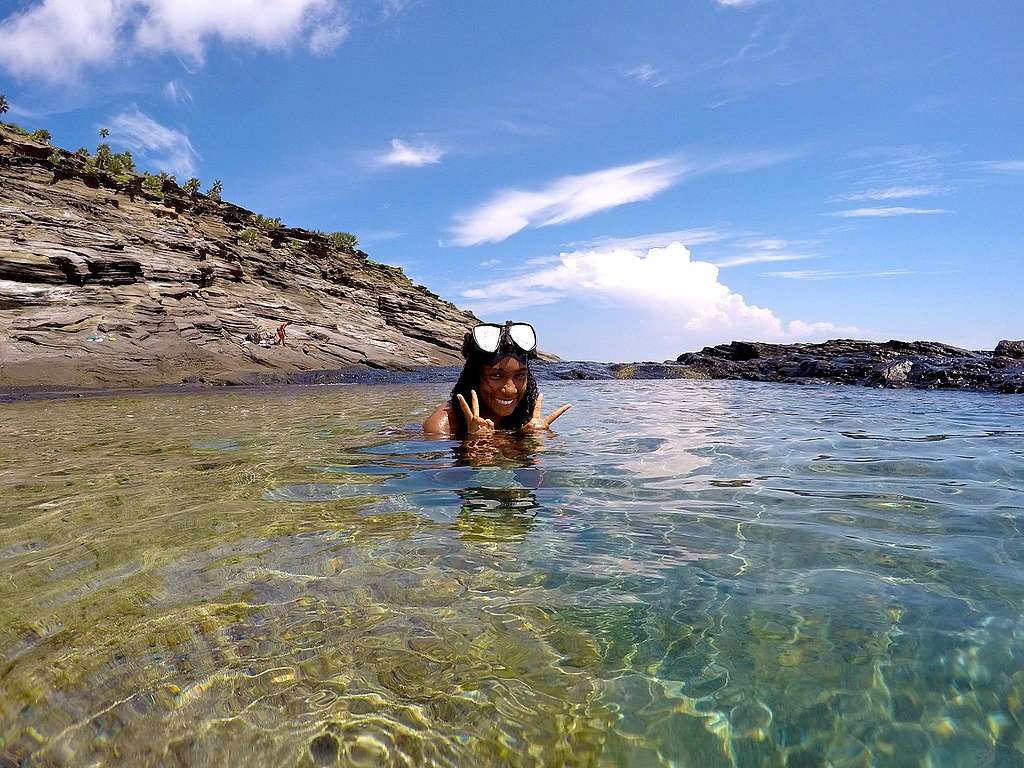Vital Ocean Voices is a series of stories from people living in coastal communities around the Indian Ocean, providing first-hand accounts of the impacts of destructive fishing, pollution and climate breakdown.
Aurelie, a scientist from Mauritius and daughter of a fisherman, always felt a strong connection with the ocean. Growing up by a beach she witnessed the unsustainable development affecting the ocean. Her life mission is to inspire future generations to protect the ocean, starting where land meets the sea.
It was on the 26th of July 1990, you could hear a newborn crying from a distance. “Is he a boy?” asked the dad. No Mr. Jocelyn it’s a girl, replied the doctor. The mother and the now big sister were both happy to welcome this new baby girl and could not contain their joy. We will name her Aurelie, they said to the dad, who on the other hand was not having it. He wanted a boy so desperately and made up his mind to raise the little girl like his son. He even started calling her “ti zom”, meaning little man. If you are still guessing who Aurelie is, then yes, I am ti zom.
I was born and raised as a boy on an island named Mauritius. The island is surrounded by white sandy beaches and crystal-clear turquoise lagoons with a diversity of aquatic life to be observed. I was lucky to be treated like a boy in my time and this island was my playground. While all the other girls from my block had to do chores and stay at home. He would often take me on fishing trips to feed the family. I would be fishing from the shore my dad would be fishing past the reef. At the end of the day, they had a full catch, sharing it amongst other fishers and people in the community.

During the cyclone season, my dad and I would often check the beaches as this would be a great opportunity to easily collect fish and octopuses that were washed ashore. I felt privileged to have this intimate connection and sense of freedom with my dad, the ocean, and the volcanic land which rose from the sea. However, with time he started coming back home with fewer and smaller sized fishes. During this time bigger fishing fleets were visible on the horizon, fishing further and for longer. Ocean life in the seas surrounding Mauritius were depleting.
As I journeyed through life it became clearer to me that the strong connection, I felt with nature would dictate the path I would take. I decided to become a conservation biologist, devoting my time to the protection of mother nature. However, as a conservation biologist, it was clear that Mauritius has a dark side, a history of terrible consequences to its wildlife from human activity. Mauritius shows our potential to cause the extinction of an entire species, the dodo being wiped off this planet, never to return again and thus the expression… “dead as a dodo”.

For myself, I consider this place as the country of hope for environmental protection action, a motherland for future conservation biologists who will fight to protect the remaining Mauritian species. My dad could not believe his eyes when I made it to University. The simple fisherman, had a daughter graduating with a BSc in Biology. Looking in his eyes I could see that he no longer saw me as his little boy, but his beautiful young and inspiring biologist full of hope for the future of nature and Mauritius. This was one of the proudest days of my life.
My journey continued with the Mauritian Wildlife Foundation where I dedicated five years of my life. Three years was spent as the Round Island Senior Warden. Round Island is north of Mauritius, and has one of the biggest colony of seabirds in Mauritius; red- and white-tailed tropicbirds, Round Island petrels, wedge-tailed shearwaters, sooty terns and common noddies. We found a tropicbird returning from sea covered in oil and we also remove fishing debris from the rings of seabirds.

My role was to protect the island from invasive species, to monitor the health of the plants and animals and restoring the island to its natural state. Past and present human activities were visible on the surrounding sea, the seabirds acting as messengers. We cleaned the coastal areas of marine debris, floating with ocean currents and from the mainland. It was mainly plastic material such as fishing debris, bottles, flip flops, plastic bags and lots of polystyrene broken down into smaller pieces. Our life support system being destroyed, the pollution a visible reminder of our in-actions.
I was granted a fellowship from the Zoological Society of London to raise awareness toward protecting the environment with the next generation of Mauritius. I used this opportunity to explain how land is connected to the ocean and how we depend on a healthy ocean to live. As islanders, we must protect marine and terrestrial life to survive. Throughout my journey, my dad was proud to see how he contributed to the woman I am today. As his legacy, I know he is looking over me as I try to save our homeland.

Aurelie Hector is a scientist from Mauritius.
Guest authors work with Greenpeace International to share their personal experiences and perspectives and are responsible for their own content.
